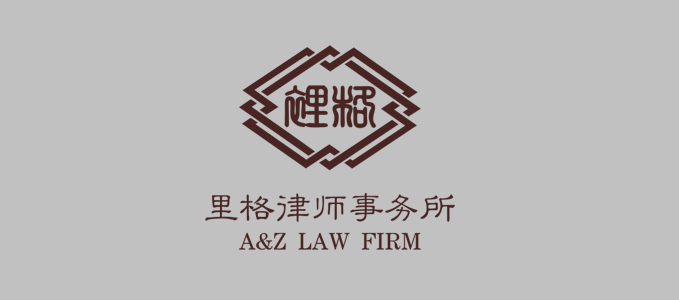Mobike May Be In Trouble With Locking Its Bikes
Mobike May Be In Trouble With Locking Its Bikes

Mobike May Be in Trouble with Locking Its Bikes
Alice Dong, Intellectual Property Department
Last month, China’s bike-sharing company Mobike was brought to Court by Lingyun for infringing its patent rights with regard to cellphone-lock technology. Mobike is promoted energetically as a company with multiple IPs, particularly the inventions relating to the cellphone opening and locking system, and the GPS system. It is said that Mobike’s company image and business may be greatly affected if its cellphone opening and locking system is held to constitute an infringement and Mobike is ordered to stop using it immediately. In such a case, all the orange and silver bikes may disappear from the market and go back to the factory to change their locks.
Background
On 7th March 2017, Beijing Mobike Technology Co., Ltd. (北京摩拜科技有限公司“Mobike”), China’s largest bike-sharing company, was sued for patent infringement by the digital lock technology developer Shenzhen Lingyun Technology Co., Ltd (深圳市呤云科技有限公司“Lingyun”). Lingyun accused Mobike of unauthorized use of its cellphone-lock technology within the protection scope of its valid Chinese invention patent “Network Locking Identification System and Invention” with Patent No. ZL201310630798.3 in bike-sharing services. Lingyun requests the Court to order the alleged infringer to cease the infringement and pay for damages.
On the same day, Lingyun filed an application for administrative enforcement at the Beijing Municipal Intellectual Property Office (BIPO) (北京市知识产权局) on the basis of another invention patent “Internet Locking Temporary Authorization Device and Invention” with Patent No. ZL201310630670.7. This application was also accepted by the BIPO.
Lingyun is a creative technology company providing services in cellphone locking. Since being founded on 1st June, 2015, the Company has obtained seven (7) granted patents, four (4) of which are invention patents, one (1) design patent, and two (2) utility model patents. Lingyun also registered two (2) pieces of software for the Lingyun Control System and Cellphone Opening and Locking System, and have applied for 4 registered trademarks of “令” (Ling, referring to Lingling Kaimen) in different categories.
Mobike Fights Back
Mobike responded rapidly and within two weeks delivered a counterblow against Lingyun. On 22nd March 2017, Mobike submitted an application for a patent invalidation announcement against Lingyun’s patent with Patent No. ZL201310630670.7 at the Patent Re-examination Board of the State Intellectual Property Office (SIPO). This invalidation application was accepted and the re-examination is ongoing.
Mobike’s rationale is straightforward and comprehensive; if the patent is invalid, then Lingyun loses the grounds for the application for administrative enforcement. Regarding the lawsuit, until now, Mobike has not taken any public action. As the defendant, Mobike may submit another application for a patent invalidation announcement against Lingyun’s patent with Patent No. ZL2 ZL201310630798.3 during the litigation process. Mobike could win the case if the plaintiff's patent is considered invalid.
Timeline
- 2017-03-07 Lingyun filed a lawsuit against Mobike at the Beijing IP Court.
- 2017-03-07 Lingyun filed an application for administrative enforcement at BIPO.
- 2017-03-22 Mobike filed an application for patent invalidation at SIPO.
A&Z’s Comments on the Case
There is a Chinese proverb that states; “the drinker's heart is not in the cup” (醉翁之意不在酒). The proverb means that even though the drinker partakes of the alcohol, they do not pay any mind to the drink. Instead, their heart (their thinking) is concerned with another matter. This proverb perfectly matches the Lingyun case: Lingyun’s lawsuit against Mobike is not merely about winning the litigation, but concerns ulterior motives.
One motive is to test the validity of its invention patent. Although the patent is granted, the validity and patentability of said patent remains, to a certain degree, uncertain. Any individual is entitled to submit an application of non-patentability on that of a granted patent to the SIPO according to Chinese patent laws and regulations. Another motive of Lingyun’s is to send a strong warning to other infringers in China to stop infringing Lingyun’s IP rights.
If the Court held that the automatic opening system of Mobike’s bikes falls within the protection scope of Lingyun’s patent right, the defendant will be liable under patent infringement, resulting in a great success for Lingyun. Moreover, if Mobike is ordered by the Court to compensate for damages, that would be the cherry on Lingyun’s cake. In the case that Lingyun wins the patent infringement case, as said in an interview by Yue CHENG, co-founding partner and Director of Lingyun, the Company will take further actions against other infringers, such as filing a group lawsuit.
A&Z’s Insights for Technology Entities
- Acknowledge the true value of IP. Such intangible assets are of little monetary value unless activated through licensing, transfer, or assignment. In other words, the aim of IP is not purely to own a creation or an invention, but to manage and utilize IP to maximize profits.
- Establish a company IP strategy. Even for Start-ups, company IP strategies should be in line with the company’s business model. This is an important part business strategy for technology companies. Lingyun has been aware of the core competitiveness of its cellphone opening and locking system. Accordingly, their IP strategy is to create, manage, protect, and use IP.
- Second thoughts are the best. When your patents are being infringed by other companies, rash actions may lead to failure in adducing evidence during the course of litigation. It is advisable that one carefully collect evidence and get it notarized (and authorized if necessary), especially when the acts of infringement and the evidence exists online.



